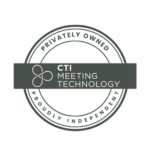As an event planner, ensuring a smooth and hassle-free meeting experience is your number one priority. This aspect is essential not only to guarantee an enjoyable experience for all participants, but also to maintain your event’s reputation. The key to a successful event is to meticulously plan every detail beforehand. However, even the most well-planned meetings experience unexpected challenges and disruptions.
As an example, think about the COVID-19 pandemic outbreak in 2020 and how it transformed the whole event industry. Granted, such situations are rare, but it shows the importance of thoroughly designing a detailed crisis management plan for your events. This extra step will equip you and your team with the necessary tools to face any potential problems. In this article, you will learn how to effectively prepare to face these situations before and during your event.
But what exactly constitutes an event crisis? Well, any unforeseen circumstances or emergencies that could potentially cause harm or disruption during an event. The most severe possibilities are public health emergencies, like a pandemic, or natural disasters such as fires or earthquakes. These cases may seem far-fetched, but the probability is never zero! The most common situations that organizers might face are speakers not showing up, audio not working correctly during a presentation, or a broken AC in the venue. Try to keep all these problems in mind, no matter how unlikely they might be. It’s vital to be prepared for any type of crisis to minimize its effect on the meeting and participants.
Consider partnering up with a professional software provider capable of addressing these challenges in real time.
The Potential Impact of An Event Crisis
When a crisis strikes during an event, its impact can last long after the incident has been resolved. A delayed or unprofessional response will directly affect participant experience, which can lead to unsatisfied attendees who will spread negative opinions about the meeting. It is worth mentioning that even the event’s reputation can be affected by unsatisfied participants sharing their experiences through social media and word of mouth. And in more severe cases, not only the event image and your brand reputation are damaged, but it may lead to financial loss or legal issues.
Let’s face it: problems and challenges are almost impossible to avoid. But a poorly managed crisis can cause irreversible harm to your event’s image, leading to a decrease in future participation and thus, a decrease in revenue as well.
Importance of Planning and Risk Assessment Before An Event
The truth is, no one wants to think about problems because problem-solving is time-consuming, and it is an extra step in the already busy process of planning an event. The good news is, risk assessment can be a team effort! The keys to handling unexpected challenges effectively are preparing before the meeting and having a dedicated Crisis Management team.
The Crisis Management team is in charge of conducting exhaustive risk assessment research before the event. This task consists of identifying and analyzing potential scenarios that may take place during the event, no matter how improbable. Is there a probability of heavy rain in the area that might cause flooding in the venue? Have all speakers confirmed their assistance, or given an alternative to present their work? Was all the software tested in the venue to ensure it is working correctly?
Try to build a diverse team to come up with as many questions and situations as possible. After coming up with a list of possibilities, it is time to assess the overall impact and probability that each of them will have on the meetings. This task helps direct attention to those situations that would have a bigger impact on the event, and focus on reducing the risk by developing solutions for each scenario.
Sounds too complicated? No worries! We are breaking down all the necessary steps to design an effective contingency plan for your events below.
Steps for Identifying Potential Scenarios
- Create a Crisis Management team: This should be the first step in the planning process. Try to choose meeting staff with varying responsibilities. Everyone should be able to spot potential risks and problems that relate to their area of expertise, so a diverse team is beneficial to drafting a better contingency plan.
- Brainstorming sessions: Once your team is formed, actively collaborate with them to come up with a list of potential crisis scenarios. This first step doesn’t need to be anything formal; just set up a meeting and start writing down each team member’s ideas. You can even ask venue staff or other event organizers about common problems they face. In this part of the plan, the more situations you are able to think of, the better! Once you are satisfied with the list of potential problems for the event, meet with the team for another brainstorming session. This time, try to come up with at least one solution for each of the possibilities in your list.
- Research past incidents: The best thing we can do when things don’t go our way is learn from it. Research events you managed in the past and learn from how you reacted to a specific crisis. Did you panic when a keynote speaker didn’t show up and you couldn’t go on with the presentation? Then, maybe you should ensure that there is always a backup speaker in case the main one doesn’t appear on the day of the event. Or maybe the instructions to access the venue were not clear enough and many attendees were late to the sessions? Communicate all the event logistics beforehand and make sure that there is enough staff available onsite to help attendees reach the right room. Aside from analyzing your past meetings, you can also get in touch with fellow organizers and learn about other events within your industry, or meetings that took place in the same venue. Then, analyze each case individually to identify common challenges and design strategies to handle similar situations in the future.
- Conduct a site inspection: If your event is happening onsite, it is essential to visit the event venue to assess potential risks and vulnerabilities. Is the venue easily reachable by car and public transport? Does it have special access for people with disabilities and reduced mobility? Are the rooms big enough to accommodate all attendees and ensure they are comfortable during the sessions? Does the site have AC and heating, so attendees have an enjoyable experience whether it is warm or cold outside? Luckily, most venues already have a plan to manage crises in case of major problems like climate threats or medical emergencies. Make sure you get information on the contingency plan for these cases, and communicate it with the rest of the Crisis Management team.
- Ask experts: Don’t be afraid to ask for help! There are many legal constraints and security measures that your team might not be familiar with. In this case, don’t ignore these potential threats, and seek help from experts in the area to help you handle these situations. Your research might even uncover some potential scenarios that you might have overlooked, thanks to the experts’ insights and experience.
- Work with a reliable software provider: Uncovering problems during an in-person event is easier than when you have virtual attendees as well. Oftentimes, technical issues arise when events are streamed online. As an organizer, it is not easy to be on top of every technical issue, especially with hybrid events where you have both onsite and online participants. Make sure to assign some members of the Crisis Management team to monitor and solve issues of online participants. In addition, you can also choose a software provider with a dedicated technical support team for hybrid and online meetings. This option ensures that your event will run smoothly online and all issues will be solved timely while your team can focus on problems onsite.
Key Components of A Comprehensive Crisis Management Plan
Now that you have a dedicated team and have identified multiple crisis scenarios, you need to start crafting a comprehensive crisis management plan. This plan must be tailored to the specific nature of your event, but here are a few points that you definitely cannot miss:
- Roles and responsibilities: Creating a Crisis Management team is not enough; you need to define roles and responsibilities for each member. Sometimes, when a problem arises, people will try to avoid taking responsibility and blame it on others. This is why it is very important to clearly designate who in the team is in charge of what. Apart from defining who will be responsible for each area, you should also designate a specific person to be in charge of communicating the crisis management plan to other stakeholders. It is crucial that everyone involved is aware of the decision-making protocols during an emergency to avoid any bigger issues.
- Communication protocols: As we mentioned above, everyone who is involved in the event in some way should be aware of the contingency plan designed for a potential crisis. Prepare a robust communication plan including channels, procedures, and contact details of the member of your team responsible for each area. Ensure that communication is timely and clear to all stakeholders, and designate a communication manager to answer all questions and doubts that may arise about the plan.
- Regular training: Situations, venues, staff members… These are not static elements, and they might change with each event. Train and inform your event staff on crisis management procedures regularly, to ensure everyone is on the same page. You can conduct drills or fake situations with the staff members to practice response strategies and assess the effectiveness of the plan. This is the closest you can get to experiencing an actual event crisis, so don’t miss this step and reevaluate your plan to improve parts and protocols that might not be that effective. Constantly putting your staff in these hypothetical situations will increase their preparedness and reduce human errors when there is a real emergency during the event.
- Resource management: You have designated staff members to carry out the contingency plan. Now you must identify other resources required to manage an event crisis. This includes staff as well as equipment, or external support services such as security personnel.
- Evaluate and improve: In most cases, your event will run smoothly and conclude with no major issues! However, you should not forget to evaluate your contingency plan periodically. Maybe you’re planning to hold an event in a foreign country but there is political instability or a war. Or maybe the technology you are using now to solve crises is becoming obsolete and you need to look for an alternative. Or multiple members of the Crisis Management team are leaving and you need to replace them. Don’t think about a crisis management plan as a fixed document; it definitely needs to be evaluated and updated at least once a year to ensure the success of future meetings.
CTI’s Solution to Managing Crises
Having a detailed crisis management plan should give you and your team the necessary tools to address and solve crises in time. But you can never go wrong with a little bit more help! Which is why you should choose a software provider that dedicates a whole team to solve any technical issues in a professional and timely manner. Individual technical issues can disrupt the attendee experience and affect their overall satisfaction. Here are two reasons to let your provider take care of these cases:
- They understand the software your attendees are using: Your software provider of choice should have extensive experience assisting similar events and dealing with multiple technical challenges. In most cases, they will be faster and more accurate at spotting and solving technical problems.
- Less work for your team: If your provider is taking care of all online issues, you no longer need a member of your team to take care of that. You can dedicate more resources to other parts of the plan that might benefit from having more people working on it.
CTI offers 24/7 professional technical support for both end-users and meeting organizers for hybrid and virtual events.
Congratulations! Your meeting just ended with no major issues and all participants had a satisfying experience. Maybe you encountered some challenges that were solved thanks to your crisis management planning, which shows your predictions were accurate. Whether the meeting concluded with no issues or you had to jump in to extinguish some fires, it is crucial to conduct a post-crisis assessment. This extra step will help you identify which parts of your plan worked, and which areas need improvement. Constantly analyze and learn from every meeting to refine your plan and ensure better crisis preparedness.
—
In short, crisis management is not just a reactive measure, but an essential aspect that must be included in the planning process to protect your participants and your event’s reputation. Remember: while we cannot always control what happens during an event, we can control how we respond and recover. A well-thought-out crisis management plan can save your event from being a total mess after an inevitable crisis, and being able to handle these situations professionally will help your event’s image.






